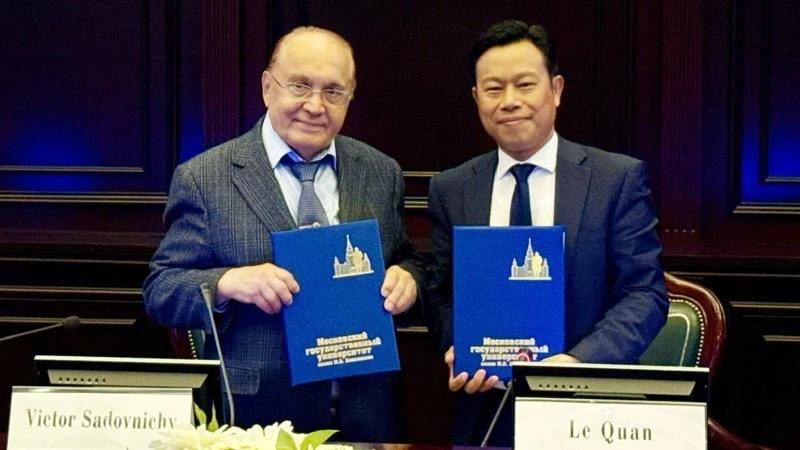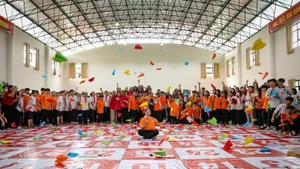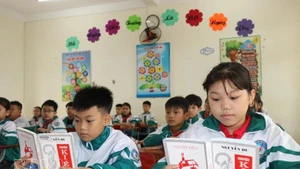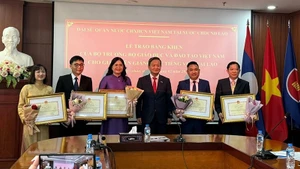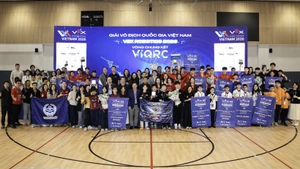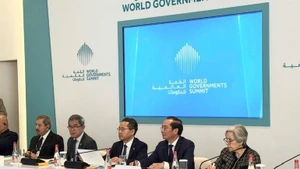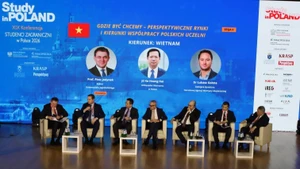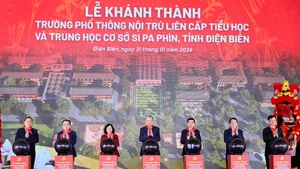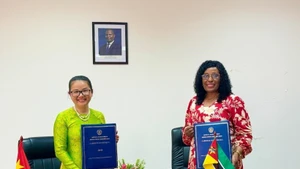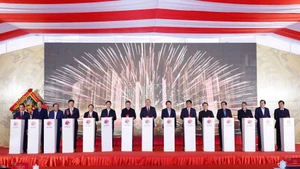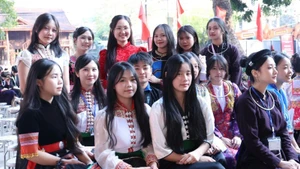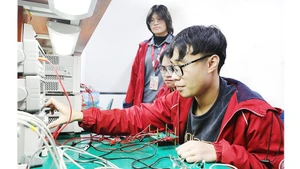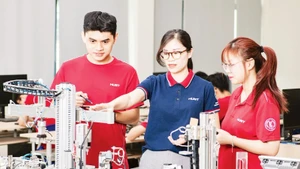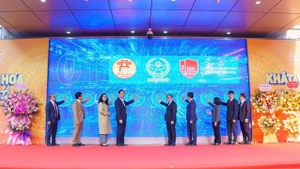According to the agreement, VNU and MSU agreed to promote cooperation in several key areas, including the exchange of staff, lecturers, and researchers for joint participation in seminars and conferences, as well as joint research activities; the development of joint training programmes, including dual-degree programmes; the exchange of academic materials and scientific publications; and student exchanges and internships to provide learners with opportunities for academic exchange and skill enhancement.
Speaking at the meeting, VNU Director Le Quan emphasised that as a leading university in Viet Nam, VNU remains committed to its mission of training high-quality human resources, conducting cutting-edge research, and promoting international collaboration.
Victor Antonovich Sadovnichy, Rector of Lomonosov Moscow State University, affirmed that MSU is ready to enhance cooperation with VNU. Agreeing with VNU’s cooperation proposals, Professor and Academician Sadovnichy suggested broadening collaboration beyond semiconductors, quantum technology, and artificial intelligence to include healthcare, economics, social sciences and humanities.
At the meeting, the leaders of the two universities also discussed a proposal to establish a strategic alliance between leading universities of Viet Nam and the Russian Federation, including VNU, Viet Nam National University, Ho Chi Minh City, Lomonosov Moscow State University, and Saint Petersburg State University. The alliance aims to enhance coordination in education and research, support mutual development, and promote sustainable multilateral cooperation in higher education and innovation.
On this occasion, VNU Director Le Quan and his delegation also visited the National Research University – Higher School of Economics (HSE) of the Russian Federation. During the working session, the two sides discussed measures to promote concrete cooperation programmes under the framework of the agreement signed during Party General Secretary To Lam’s official visit to the Russian Federation.
Under this agreement, VNU and HSE will jointly establish a scientific research institute based at VNU. Through this institute, the two universities will implement training and research activities in key fields such as high technology, artificial intelligence, and socio-economic development policy.
Director Le Quan expressed his hope that the two universities would accelerate the development of flexible training programmes and short-term thematic courses, particularly summer schools, to promote academic and cultural exchange for students. He also proposed encouraging student and faculty exchange programmes within the framework of the 1,000 scholarships offered by the Government of the Russian Federation to Vietnamese citizens. These scholarships include undergraduate, master's, and doctoral degrees, professional internships, and Russian language studies, focusing on areas aligned with Viet Nam’s training needs and Russia’s academic strengths.
Additionally, both sides agreed to identify and implement joint research projects in fields of mutual interest, such as digital and green transformation, artificial intelligence, energy, international relations, architecture, and design. These projects are expected to generate practical benefits and contribute to sustainable value in research and education between the two institutions.
